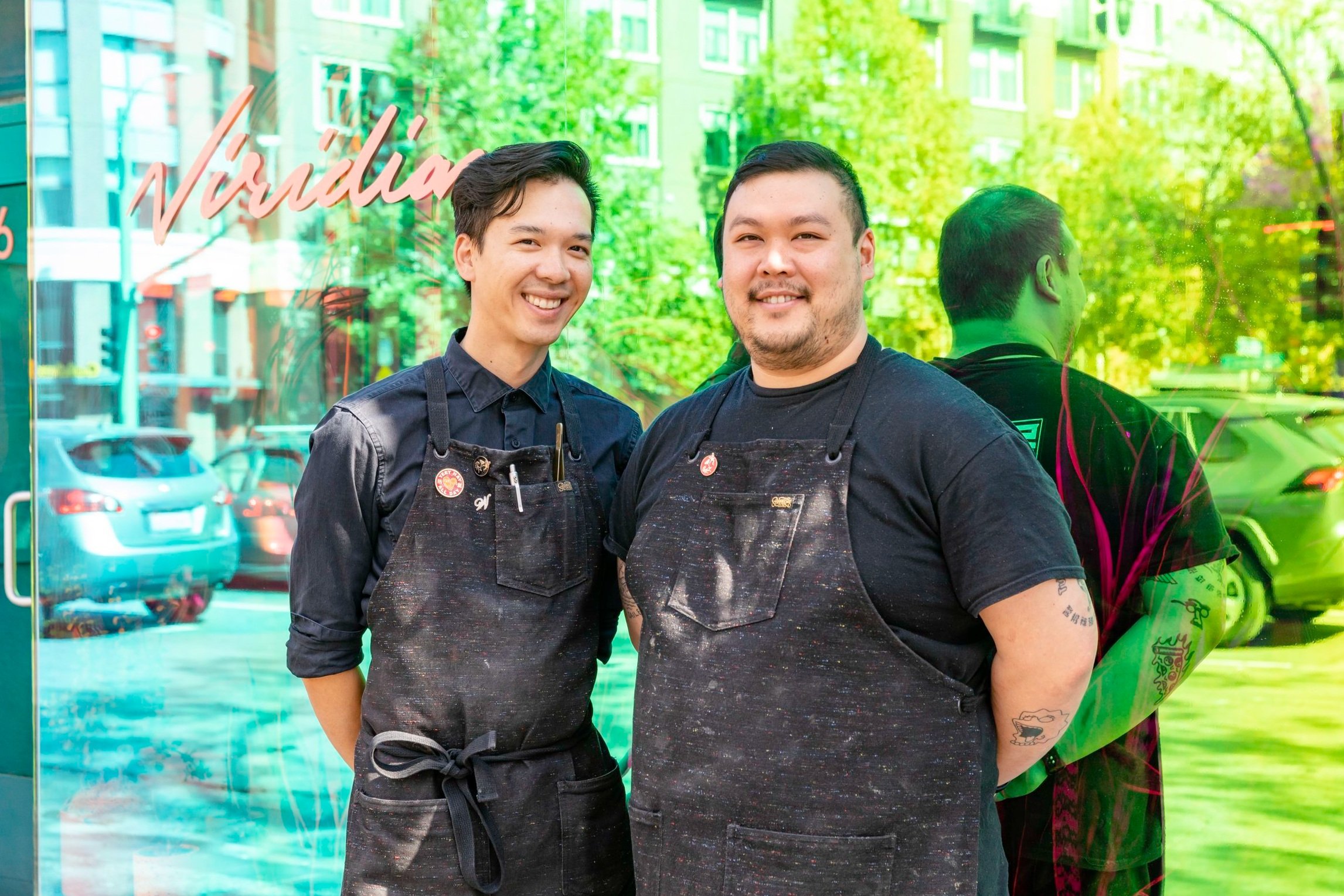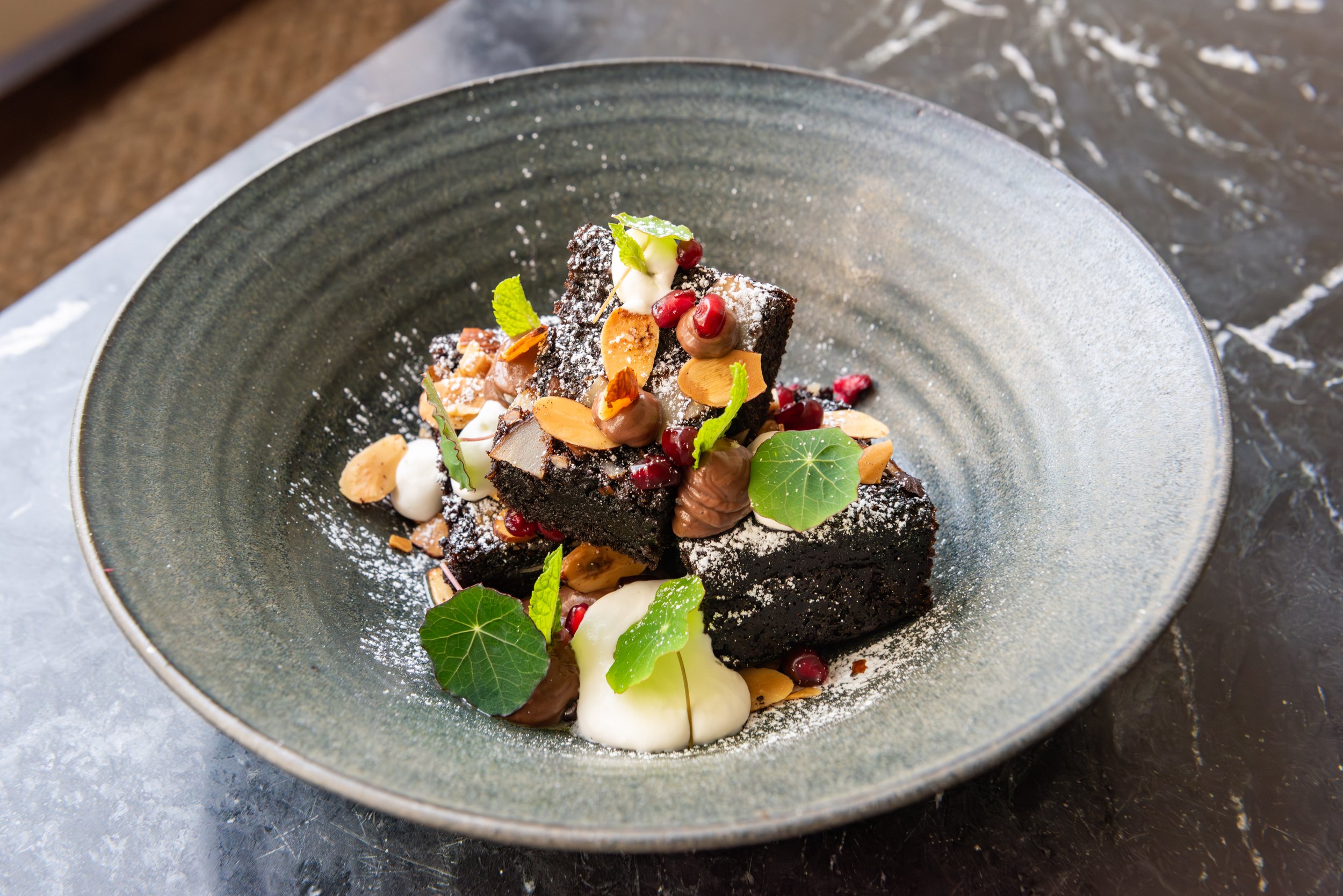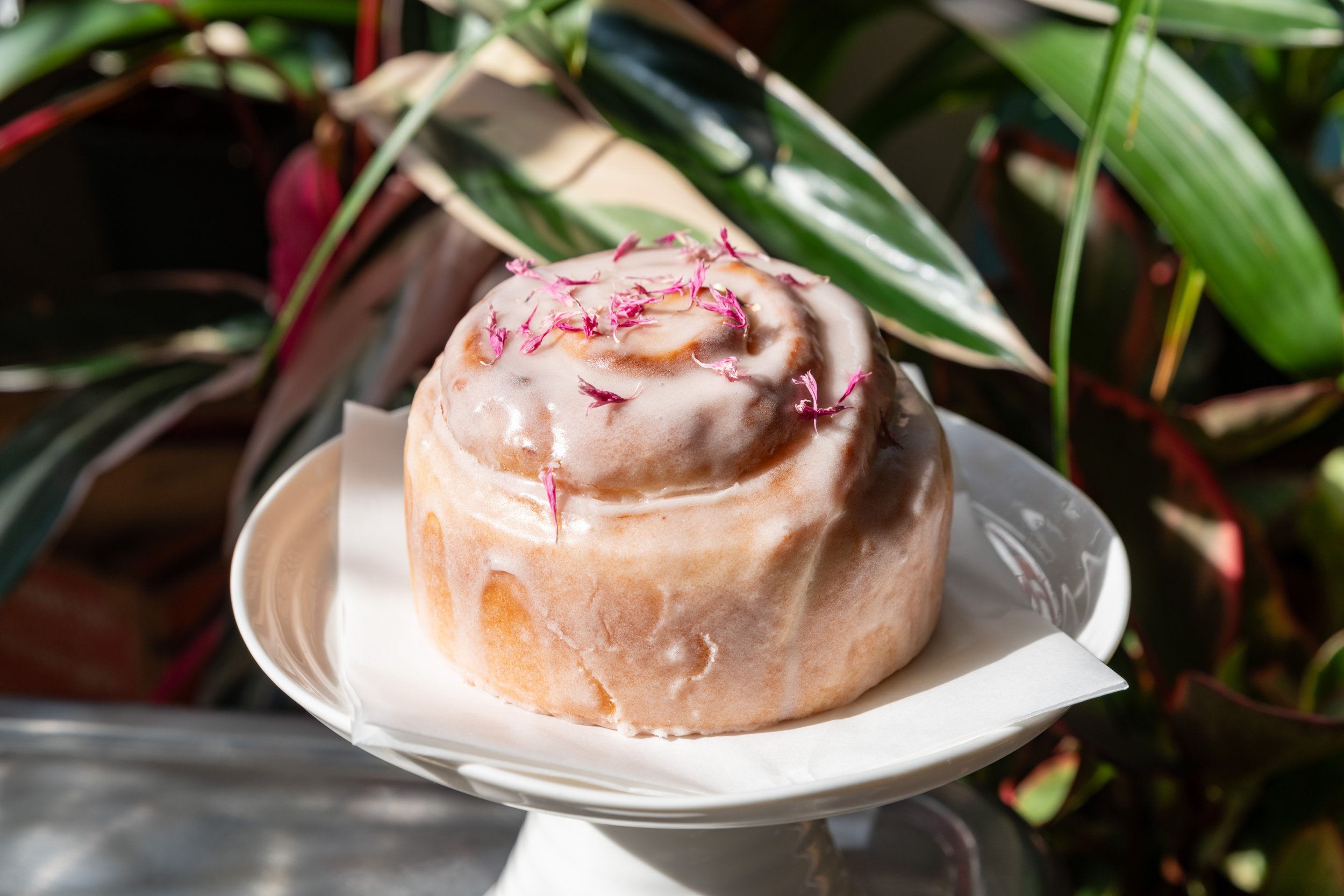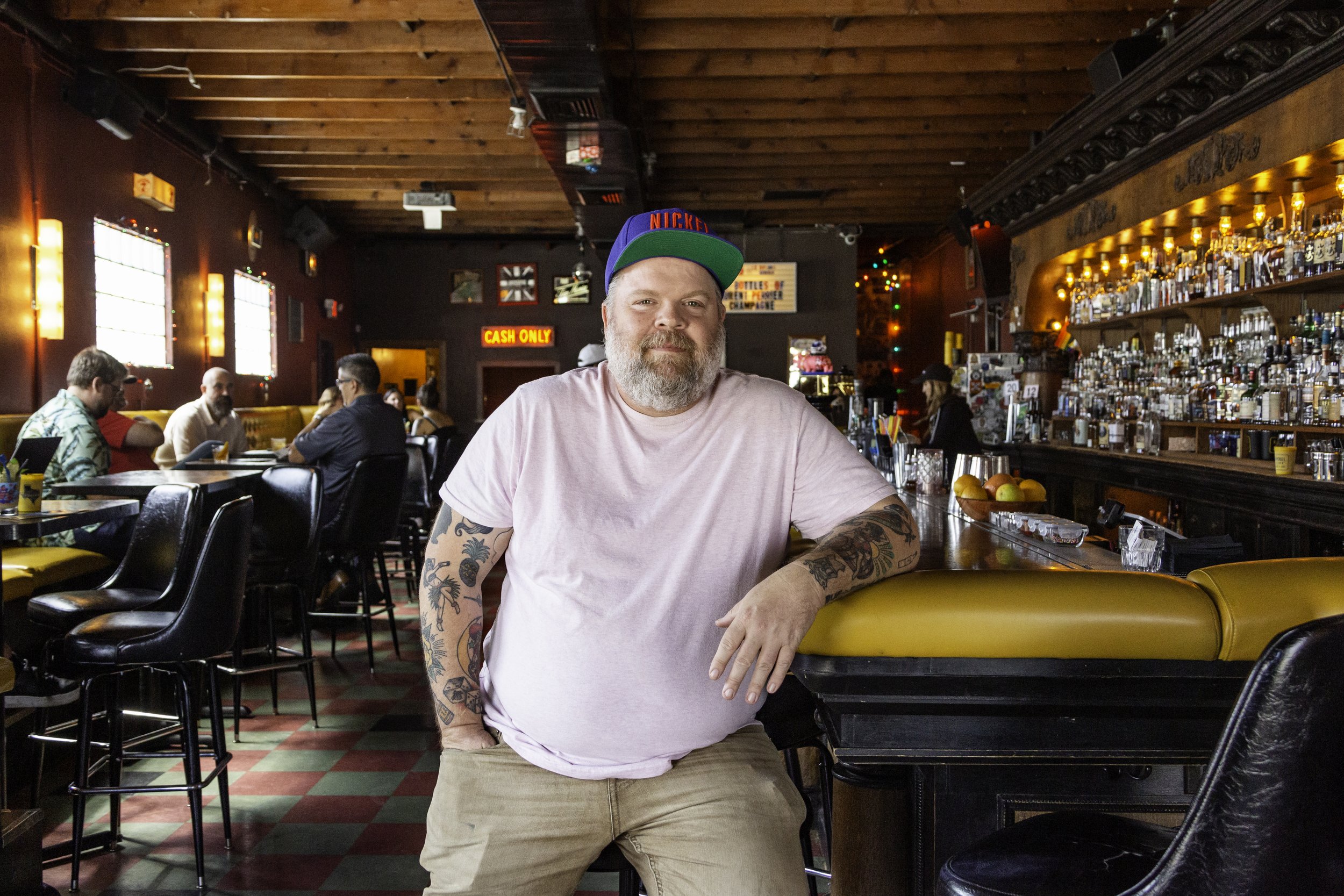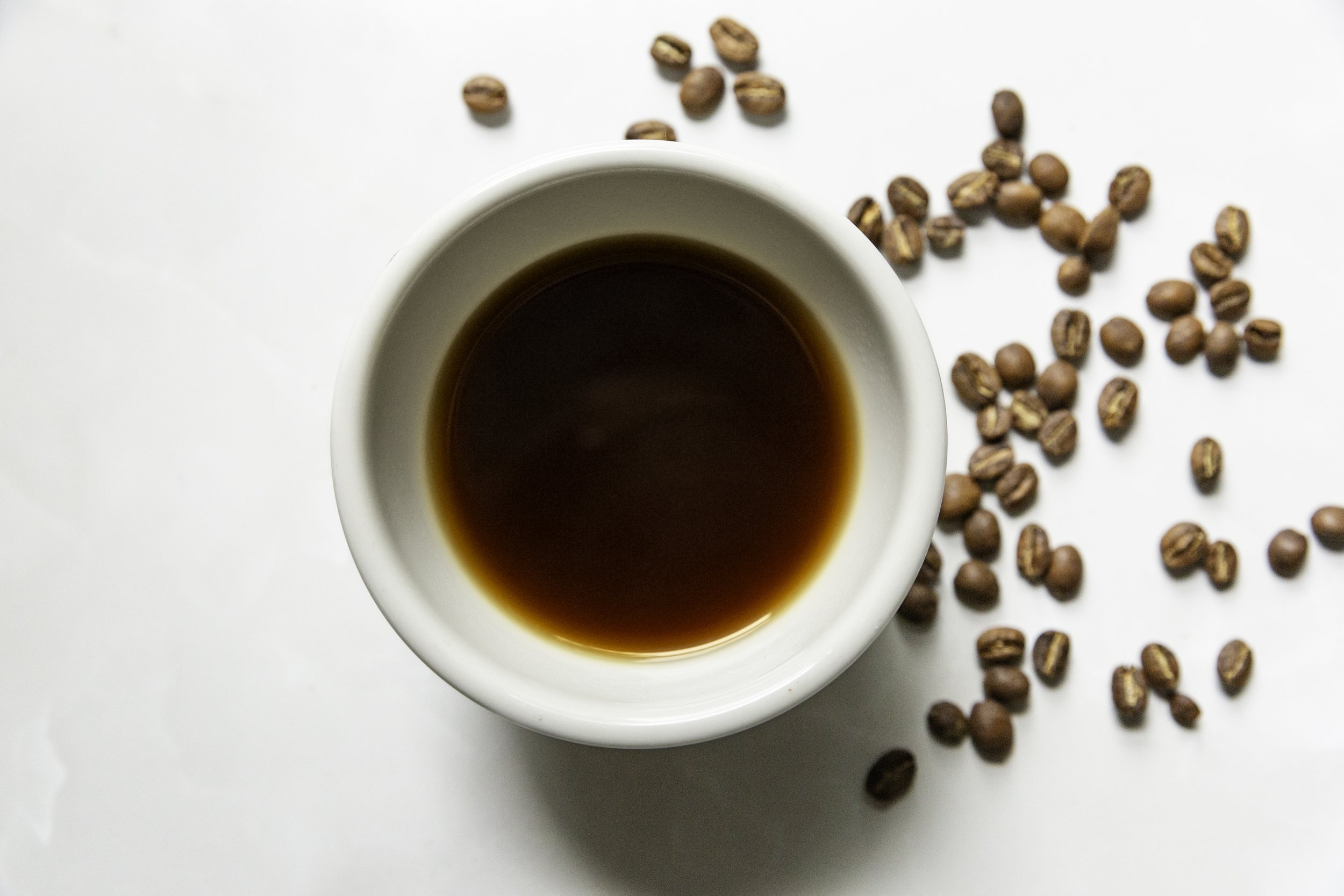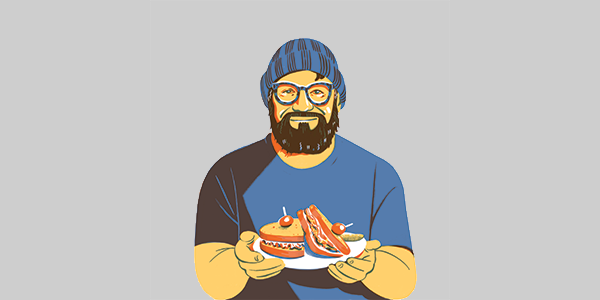The Viridian Vision
Executive Chef Kevin Tang and Bar Director/Co-Owner William Tsui discuss finding their voices at Viridian.
Bar Director William Tsui and Chef kevin tang | PHOTO: AndRIA LO
We sat down with Executive Chef Kevin Tang and Bar Director/Owner William Tsui of Viridian to talk about cross-utilization, nostalgic bites, and feeding the Oakland community.
Amelia Schwartz: What was your original vision for Viridian?
William Tsui: When the opportunity came for me to open up my own concept, [I wanted to] take what I learned here and kind of extrapolate it into a broader, larger project where we can serve more people, where we can take the skills that I've grown and make it so that anyone can enjoy it. Like we do all of our cocktails in a very culinary style. So everything is done before. Everything is prepped. Once service begins, our bartender isn't picking up more than three bottles, so that they can focus on hospitality. That was always the goal. When we first opened, we were a cocktail and dessert place just because our focus was always going to be on the cocktail program. [Pastry] is where we can share the most amount of ingredients. We had barely any savory food. So when we were able to open [after the COVID-19 pandemic], we sat down and decided to offer a savory program. And then we landed on Kevin. The great thing about him is we share the same background growing up Asian American, and the same want: to tell our stories through the things that we make.
AS: Kevin, what made you want to join Viridian?
Kevin Tang: Right before Viridian I was running this Vietnamese tasting menu concept and I wanted to put my focus back into a restaurant. So I was interviewing around and, in terms of the concept and background, Viridian just fit like a glove. You know, like William said, we have the same Asian American upbringing. We share a lot of the same memories. It just felt so natural—I felt like I’d known them for 10 years. I was out there looking for a very specific position because of my cooking style and they were looking for a very specific chef and it just worked out really well.
WT: He's our Cinderella!
Duck-Taro Croquettes, Shared Cultures Chanterelle Miso, Pluot Sauce, Scallion Salad, Smoked Soy Vinaigrette, Marinated Pluots
Heirloom Tomatoes, Charred Yellow Peach, Shared Cultures Misos, Whipped Tofu, Fried Shallot, Fermented Tomato Powder, Thai Basil
AS: So how would you describe that “very specific chef”?
WT: Honestly, I think it was more of a cultural fit. We wanted someone who could tell the stories that we want to tell. We experienced growing up here. And for Kevin, that was natural. He understood the flavor—he has such sincerity about the food and comes from a place of knowing and also a place of nostalgia. And that’s hard to fake. You can learn Japanese cuisine for 10 years and it still gets lost when it comes to the nuances of it, so something that has such a sense of authenticity was undeniable.
KT: It’s just these weird things—like oh, Laughing Cow Cheese. I didn’t know that was a Vietnamese thing. Even Costco, I didn’t even know that was an Asian thing. You kind of have to be in the environment to [understand those nuances]. It’s almost like chaos cuisine. We’re taking a lot of things to tell a story. I had this kind of identity crisis of wanting to fit in, but at the same time wanting to catch up on my roots. So I wanted a platform to tell that story.
AS: How do you balance that nostalgia factor with cross-utilization and making a good product?
WT: The great thing is, we come from a culture where waste is frowned upon. Growing up, our parents would squeeze out every last drop. [We’re] coming from this immigrant mentality where we didn’t have things and now we do have things and there’s still this sense of responsibility of making the most of what we have. When it comes to cross-utilization, the most important thing is imagination and technical know-how. Sometimes it gets hard turning something that’s essentially trash byproduct into something delicious. That’s where talent comes in.
KT: Yeah it takes a lot of experimentation. It takes a lot of skill. But the ones that hit, really hit.
Tomato Beef: El Tereso Blanco Tequila, Basil Eau de Vie, Tomato Water, Liquid Shio Koji, “Not Lime,” Pink Peppercorn, Bay Leaf
Passion From 6feet: Mulholland Vodka, Passionfruit, Lychee, Vanilla, Cacao, Lemon
AS: What’s an example of a dish that you think really hit?
WT: One of our most popular cocktails right now is the Tomato Beef. We go through probably two cases of tomatoes every couple of weeks. To make tomato water, you're essentially blending all these tomatoes into a purée and we’re straining out literally just the water. What's left over is all this tomato pulp. So for the longest time we had like 16 pounds of tomato pulp just sitting there. So Kevin has finally found a way to do something with it that’s utterly delicious.
KT: We ferment the tomato pulp for 6 to 7 days until it gets all bubbly and acidic. Then, we re-blend it, and dehydrate it into a powder. So the powder is full of umami, full of acidity, full of funk. We also strain that product for the fermented tomato water as well—we use it in place of vinegar because of how tart it is. It also has umami that you wouldn't have in tomatoes. So we always [add it to] stock.
AS: What role do you want Viridian to play in the Oakland community?
KT: I want [our guests to] enjoy that nostalgia. Almost have that “Ratatouille” moment, where there’s that flashback and you’re in your grandmother's house and there are certain smells and certain tastes and certain things that you see. We’re trying to communicate that through our craft and people have gotten it.
WT: The community just really showed up for us—just a great outpouring of support and I think a lot of that is because we’re contributing to what makes Oakland, Oakland. We need to heed the call of our community and always work towards that goal of contributing to the culture.

